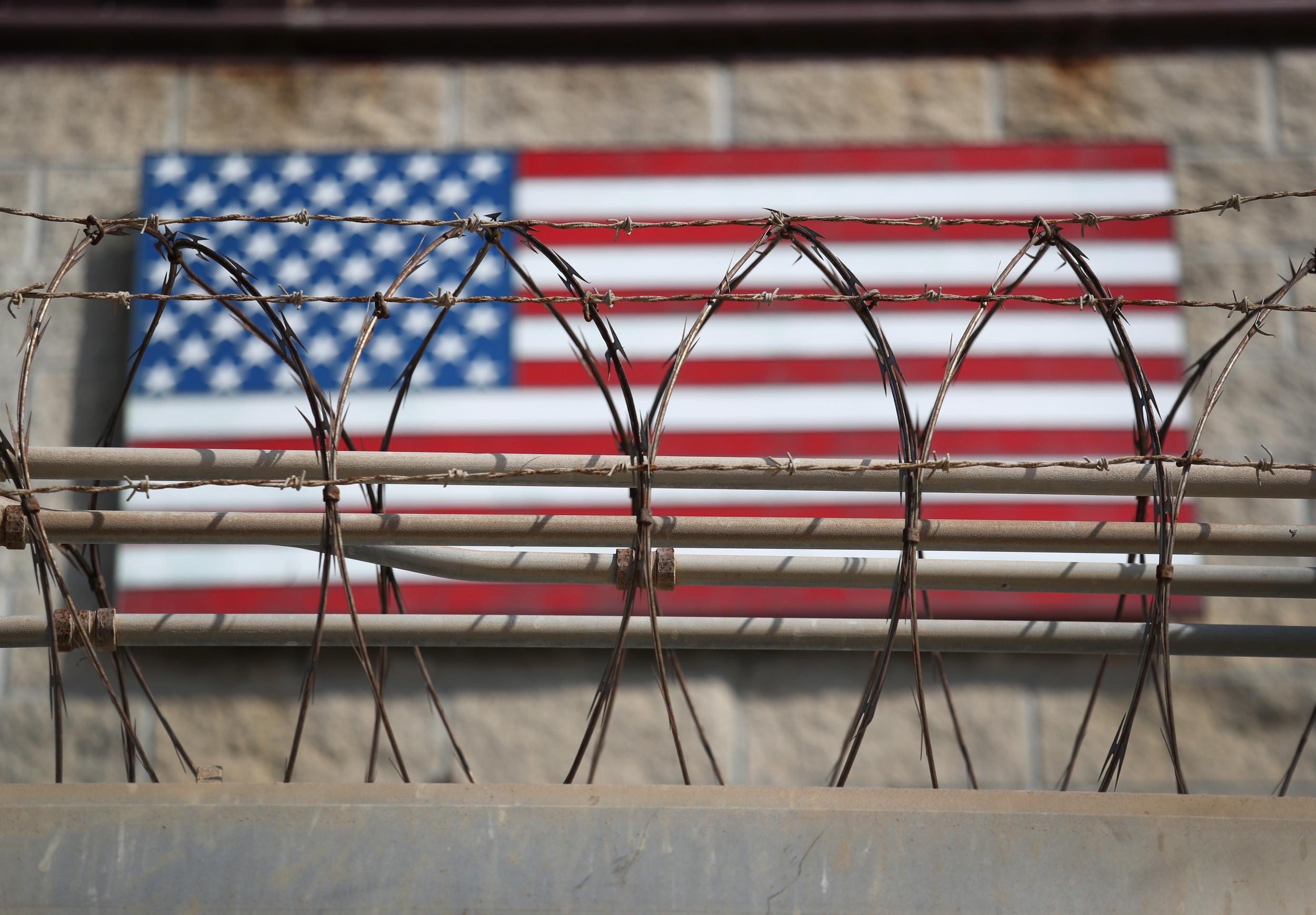Trump plans massive private prison expansion to jail undocumented immigrants
The plans are consistent with Mr Trump's promise to crack down hard on illegal immigrants in America

Your support helps us to tell the story
From reproductive rights to climate change to Big Tech, The Independent is on the ground when the story is developing. Whether it's investigating the financials of Elon Musk's pro-Trump PAC or producing our latest documentary, 'The A Word', which shines a light on the American women fighting for reproductive rights, we know how important it is to parse out the facts from the messaging.
At such a critical moment in US history, we need reporters on the ground. Your donation allows us to keep sending journalists to speak to both sides of the story.
The Independent is trusted by Americans across the entire political spectrum. And unlike many other quality news outlets, we choose not to lock Americans out of our reporting and analysis with paywalls. We believe quality journalism should be available to everyone, paid for by those who can afford it.
Your support makes all the difference.The Trump administration is planning a massive increase to the capacity of federal immigration jails across the country, which advocates and lawyers say foretells the continued ramping up anti-immigrant actions in the United States.
Notices published in recent weeks to a federal contracting website ask for the identification of privately-run jail sites to boost current jail capacity by 4,000 inmates in five areas of the US, including Chicago, Detroit, Salt Lake City, St Paul, and southern Texas. A public announcement did not accompany those notices.
Those notices are consistent with Donald Trump’s promise on the 2016 campaign trail to crackdown on illegal immigration, and consistent with Mr Trump’s escalated efforts since he took office to arrest illegal immigrants in America.
In the first nine months of his presidency, ICE arrested 97,482 people it suspected of being in the US illegally, marking a 43 per cent increase over the same period a year before. That includes the arrest of 28,011 immigrants who did not have a criminal record, marking a 179 per cent increase in arrests targeting a population even though their criminal history showed they did not necessarily pose a risk.
Many of those immigrants are funnelled into a multibillion dollar private prison system, where between 31,000 and 41,000 detainees are held each night. In many cases, those private prison corporations — led by the behemoths GeoGroup and CoreCivic, formerly Corrections Corporation of America — have contracts with the federal government guaranteeing their beds will be filled, or that they will receive payment regardless of whether they have a full house on any given night.
An ICE official told The Independent that the notices serve to conduct market research in order to determine potential facilities that might be considered. No contract will directly result from the notices, the official said, though they noted that the budget for 2018 would support an average daily detainee population of 48,000.
Cristina Parker, the communications director for the immigrant advocacy group Grassroots Leadership in Austin, Texas, says that the trend toward non-criminal detentions are troubling. ICE agents are targeting people in the streets and at their homes, instead of targeting people during workplace raids like the Bush administration did, or targeting people through a co-opting of the justice system, as the Obama administration did.
“There’s this feeling… of ICE being unleashed on the immigrant population,” Ms Parker told The Independent. “The raids they did here in Austin were mostly done at people’s homes, and in the streets. To me, that shows an intentional terrorizing in the community.”
The locations of the most recent notices show that the Trump administration plans on maintaining its expanded category for deportation, and could show that the agency is preparing to maintain its access to infrastructure to finalize deportations.
“All of those are large urban areas with large airports from which deportations could easily happen,” César García Hernández, an associate professor at the University of Denver Sturm College of law, who publishes a blog discussing the convergence of criminal and immigration law, told The Independent. “It means that they’re actively thinking about how they will actually remove individuals, and just how they will detain people, but actively planning for the removal process itself.”
Mr Hernández says that adding more beds to the detention capacity will only mean harsher immigration crackdowns, and will leave families in tatters.
“The more detention capacity that ICE has, the harsher the immigration enforcement activities become,” he said, noting that detention is particularly difficult for immigrant populations. “It separates families. It confines them. It surrounds them with barbed wire. For people who want to take a legal battle in the immigration court system, to be locked up and separated from families, and friends, and churches, makes it a lot more difficult than if they were living at home.”
Join our commenting forum
Join thought-provoking conversations, follow other Independent readers and see their replies
Comments